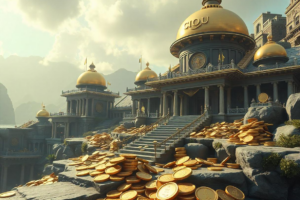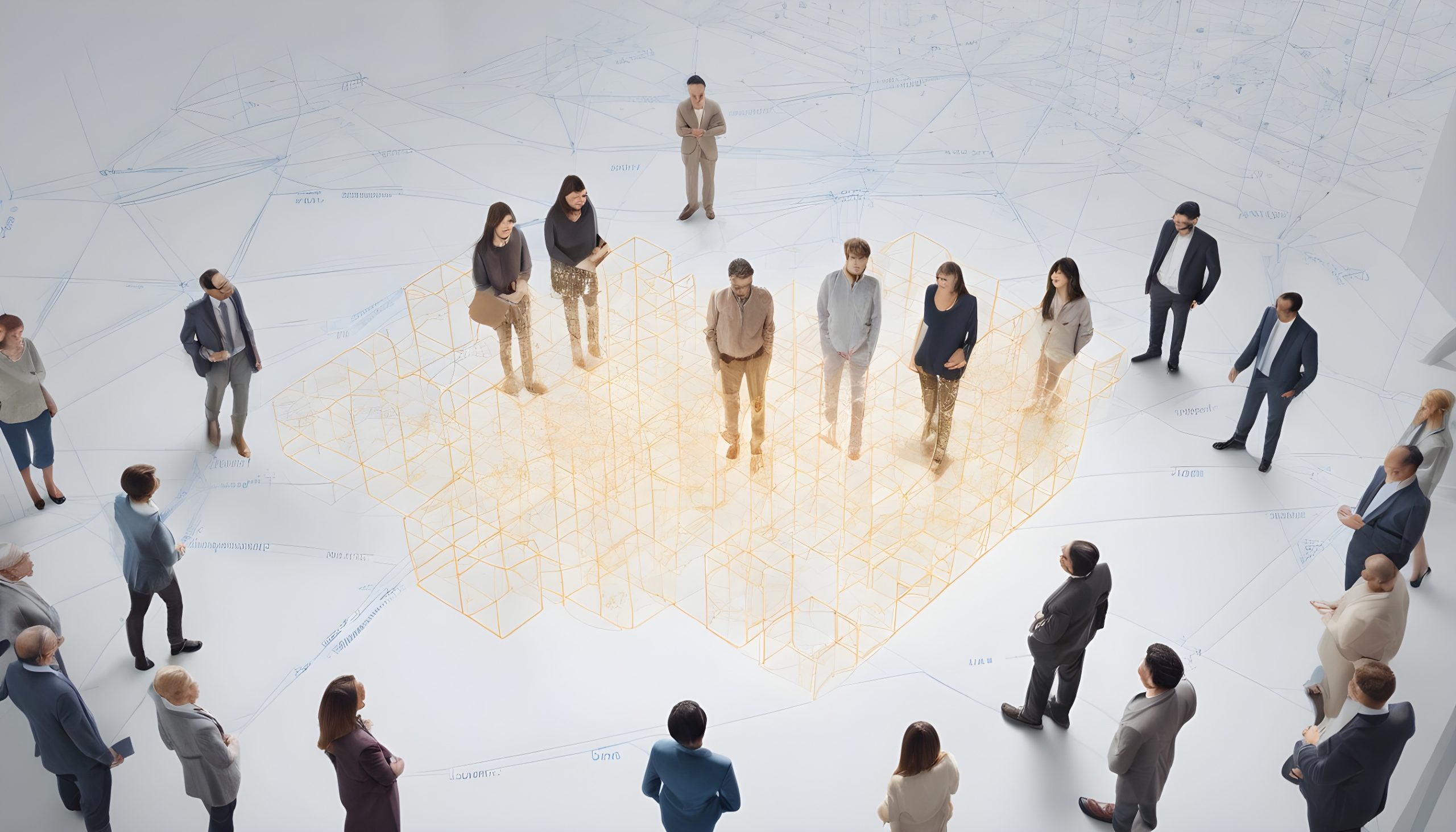Introduction
In traditional setups, organizations follow hierarchical structures where power and decision-making trickle down from top-level executives to lower-level employees. This centralized model often restricts transparency and employee involvement. Decentralized Autonomous Organizations (DAOs) present a revolutionary alternative. Picture an organization without a CEO; instead, it’s governed by its members using a transparent and democratic system on the blockchain. This core idea of DAOs challenges and disrupts traditional organizational norms.
The Problems with Traditional Organizations
- Lack of transparency: In a typical traditional organization, decision-making usually involves top managers and occurs behind closed doors, which limits access to information for stakeholders.
- Centralized decision-making: Traditional organizations tend to be bureaucratic, resulting in slow decision-making processes. This bureaucratic nature also restricts participation for members.
- Inefficiency: The hierarchy found in traditional organizations can cause delays and lead to underutilization of resources.
How DAOs Function
DAOs utilize blockchain technology and smart contracts, which function as self-executing agreements. These smart contracts automate tasks, enforce rules, and record all transactions on a public ledger to ensure transparency. This setup enables members to vote on proposals and actively participate in decision-making processes, creating a more democratic and efficient organizational structure.
Conversely, governance tokens are pivotal in DAOs, similar to voting shares in traditional organizations. The number of tokens you possess directly correlates with the strength of your influence on the organization’s decisions. These tokens empower members to propose and vote on changes within the DAO structure. Furthermore, since all transactions and decisions are recorded on the blockchain, transparency and trust are significantly bolstered.
Benefits of DAOs
- Transparency: In a DAO, every action, from voting to expenditure, is documented on a public ledger, accessible to all. The rules and code base of smart contracts are transparent, allowing members to scrutinize the DAO’s operations. This transparency fosters trust and ensures accountability within the organization.
- Democracy: Those involved in a DAO or token holders actively shape the organization’s future. Members possessing governance tokens participate in voting on proposals, covering aspects such as fund allocation and rule modifications. This inclusive system, coupled with the opportunity for anyone to suggest ideas, establishes a community-driven and democratic approach to organizational management.
- Efficiency: DAOs harness the boundless potential of blockchain technology to facilitate automated processes and streamline decision-making. Smart contracts manage repetitive tasks while voting mechanisms bypass bureaucratic hurdles. Additionally, the global accessibility of blockchain attracts talent, resulting in a more efficient and effective organization.
- Community ownership: Members experience a profound sense of belonging and shared purpose within a DAO. Through token ownership, participation in decision-making processes, and transparency via the blockchain, members become deeply invested in the success of the DAO. This promotes a strong sense of community ownership and engagement.
Challenges of DAOs
- Legal uncertainty: Regulatory frameworks for DAOs are currently lacking. The legal environment surrounding DAOs is characterized by uncertainty, ambiguity, and a lack of regulation. Operating in a decentralized fashion across multiple jurisdictions, DAOs pose challenges for lawmakers in formulating comprehensive regulations to effectively govern them.
- Security vulnerabilities: Smart contracts are vulnerable to hacks and exploits, posing risks to DAOs. Bugs in smart contracts, social engineering scams, and even holders with substantial token holdings can jeopardize a DAO’s funds and existence. Consequently, maintaining constant vigilance and implementing robust security measures are imperative for safeguarding DAOs against such threats.
- Scalability: As DAOs grow larger, they encounter various hurdles that must be addressed. These challenges may encompass scalability, organizational governance, coordination among participants, technical infrastructure, and managing heightened complexity. Effective scaling requires DAOs to devise clever solutions to overcome these obstacles.
The Future of DAOs
- DAOs have the potential to revolutionize various industries. Whether in finance, social media, creative sectors, or supply chains, DAOs introduce a more transparent, democratic, and community-driven approach. By challenging the status quo, they empower participants and disrupt traditional models.
- DAOs are pushing boundaries, yet legal frameworks are grappling to keep pace. Unclear legal status, inconsistent regulations, and confusing tax rules pose significant hurdles. Regulators might consider establishing safe zones for experimentation or crafting new, DAO-specific laws. The possibility of global collaboration and self-regulation within DAOs is also being explored. As DAOs mature, regulations may evolve, potentially facilitated by DAO advocacy groups.
- As the demand for transparency, community ownership, and efficiency grows, DAOs will strengthen. Advances in blockchain technologies and compelling success stories will drive wider adoption. From decentralized finance (DeFi) to creator communities, DAOs can disrupt numerous industries. The future looks promising for DAOs as they redefine how we collaborate and organize in the digital age.
Conclusion
In a nutshell, DAOs represent a groundbreaking paradigm shift across industries, offering a transparent, community-driven, and efficient alternative to traditional organizational structures. While regulatory challenges persist, the potential for DAOs to reshape various sectors is immense.
With advancements in blockchain technology and increasing success stories, widespread adoption seems inevitable. From DeFi platforms to creative communities, DAOs are poised to revolutionize collaboration and organization in the digital era. As we navigate this evolving landscape, embracing DAOs opens doors to unprecedented opportunities for innovation and empowerment.
















